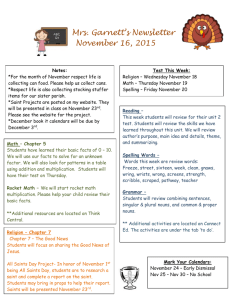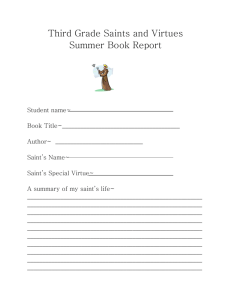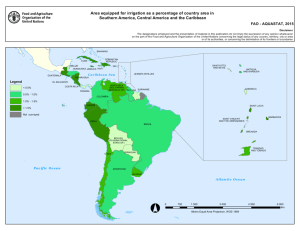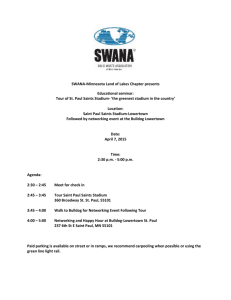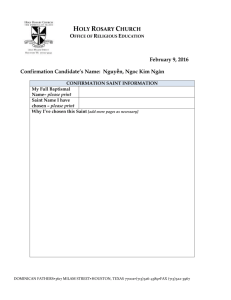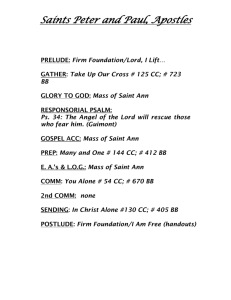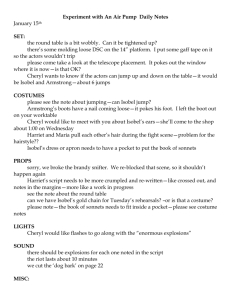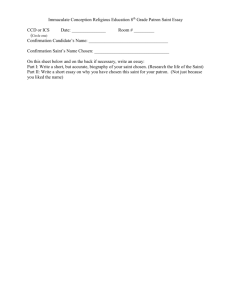Literary references in 'I for Isobel' The Little Match Girl – p.6 Sherlock
advertisement
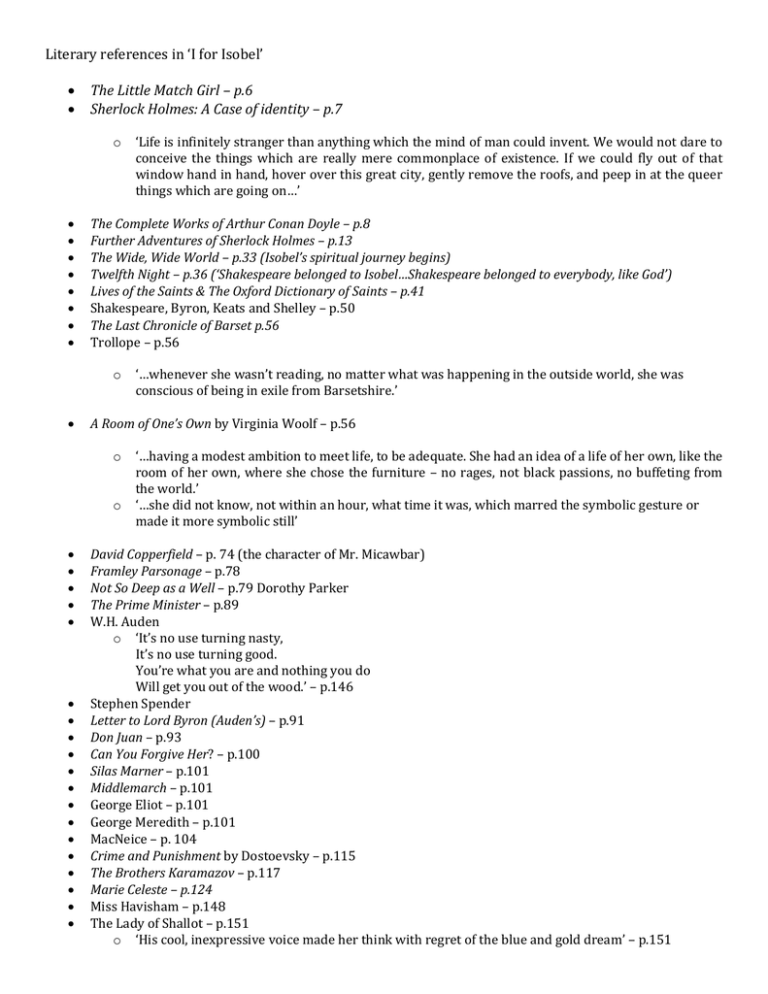
Literary references in ‘I for Isobel’ The Little Match Girl – p.6 Sherlock Holmes: A Case of identity – p.7 o The Complete Works of Arthur Conan Doyle – p.8 Further Adventures of Sherlock Holmes – p.13 The Wide, Wide World – p.33 (Isobel’s spiritual journey begins) Twelfth Night – p.36 (‘Shakespeare belonged to Isobel…Shakespeare belonged to everybody, like God’) Lives of the Saints & The Oxford Dictionary of Saints – p.41 Shakespeare, Byron, Keats and Shelley – p.50 The Last Chronicle of Barset p.56 Trollope – p.56 o o ‘…whenever she wasn’t reading, no matter what was happening in the outside world, she was conscious of being in exile from Barsetshire.’ A Room of One’s Own by Virginia Woolf – p.56 o ‘Life is infinitely stranger than anything which the mind of man could invent. We would not dare to conceive the things which are really mere commonplace of existence. If we could fly out of that window hand in hand, hover over this great city, gently remove the roofs, and peep in at the queer things which are going on…’ ‘…having a modest ambition to meet life, to be adequate. She had an idea of a life of her own, like the room of her own, where she chose the furniture – no rages, not black passions, no buffeting from the world.’ ‘…she did not know, not within an hour, what time it was, which marred the symbolic gesture or made it more symbolic still’ David Copperfield – p. 74 (the character of Mr. Micawbar) Framley Parsonage – p.78 Not So Deep as a Well – p.79 Dorothy Parker The Prime Minister – p.89 W.H. Auden o ‘It’s no use turning nasty, It’s no use turning good. You’re what you are and nothing you do Will get you out of the wood.’ – p.146 Stephen Spender Letter to Lord Byron (Auden’s) – p.91 Don Juan – p.93 Can You Forgive Her? – p.100 Silas Marner – p.101 Middlemarch – p.101 George Eliot – p.101 George Meredith – p.101 MacNeice – p. 104 Crime and Punishment by Dostoevsky – p.115 The Brothers Karamazov – p.117 Marie Celeste – p.124 Miss Havisham – p.148 The Lady of Shallot – p.151 o ‘His cool, inexpressive voice made her think with regret of the blue and gold dream’ – p.151 Light in August by Faulkner – p.151 Words of the Saints – p.152 Plato (152ish - 178) Turgenev (p.178) The Book is Gone (179) Possible: It was a present for a real girl (Pinocchio) Maeve – alter ego. ‘right behavior first’ (p.60) ‘I’m not here. I’m in Czechoslovakia with Mr. Vorocic’ p.66 ‘It’s alive. It breathes!’ (p.78) Isobel as a preposition (p.95) Joseph ‘She was really alive now.’ (p. 104) ‘But oh, Joseph, why do they hate me? If it was just the Eleventh Commandment I could bear it.’ The Eleventh Commandment was Thou shalt not be different.’ – p.110 ‘Couldn’t she have pretended?’ – p. 134 ‘You could change your name, have your face altered, change your country and your language, but in the end you would resurrect your self.’ – p.146 ‘Why can’t you be yourself a little more?’ – p.149 Sister Ignatius St. Perpetua (freedom) Saint Augustine (fear) Saint John of the Cross (p.157 – p.163) Saint Thomas More (p.163 – p.164) Saint Joan, Saint Agnes, Saint Isabel (p.163) Reading book on Saints: ‘…there was one message that came through, always: give up, sacrifice’ p.42 TITLE: I as advocate. ‘You can’t be expected to look after yourself at your age. Who else is going to look out for you, for God’s sake?’ (p.71) Aunt Nolene is for Isobel – ‘You will get nothing out of this world unless you fight for it.’ (p.71) Metaphor of the baby in the oven – Sylvia Plath?? She feels like the baby – nobody came in time to save her from her parents (p.177) ‘Idiot wants a mother. Idiot can’t have one. Life is difficult.’ (p.121) INERTIA – p.152
